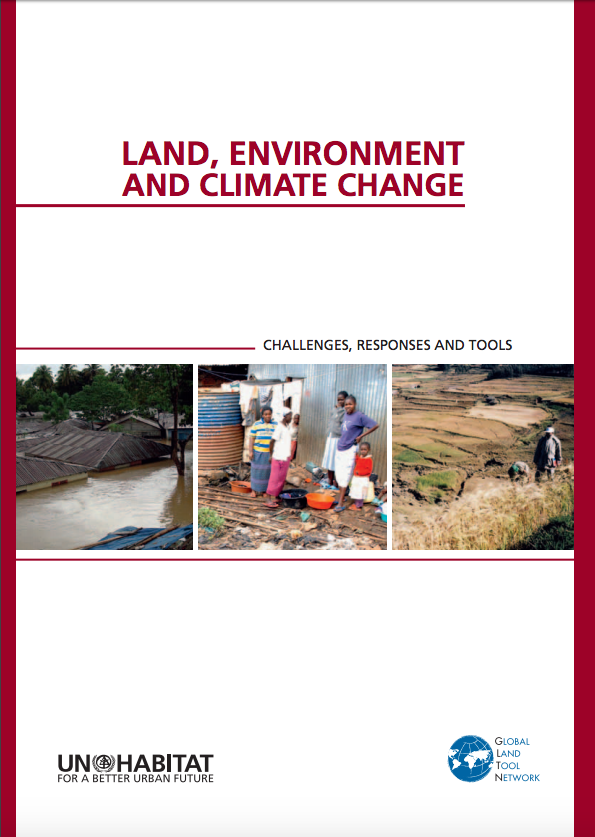Land,Environment and Climate Change: Challenges,Responses and Tools
This publication provides an overview of some the most important land-related environmental and climate change problems that the world is facing. land, Environment and climate change offers an overview of the relationship between land tenure, land management approaches and the environment. this document identifies clear linkages between land, environment and climate change, moving from a scientific framework to a country level implementation framework. the implications this has in urban and rural areas are presented, and illustrated with 20 brief cases.




